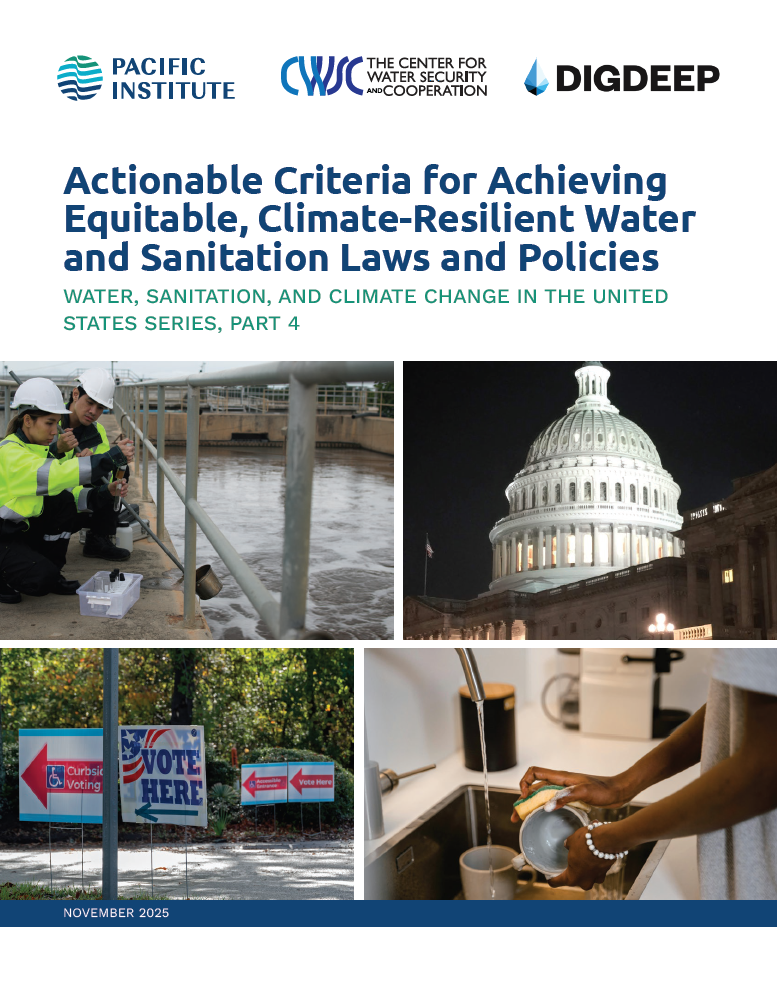Actionable Criteria for Achieving Equitable, Climate-Resilient Water and Sanitation Laws and Policies: Water, Sanitation, and Climate Change in the United States Series, Part 4

Actionable Criteria for Achieving Equitable, Climate-Resilient Water and Sanitation Laws and Policies: Water, Sanitation, and Climate Change in the United States Series, Part 4
Overview
Launched by the Pacific Institute and the Center for Water Security and Cooperation (CWSC), this fourth report in the Water, Sanitation, and Climate Change in the United States series offers the most comprehensive framework to date for assessing whether US laws are supporting or hindering our ability to secure safe, reliable water and sanitation in a changing climate. Titled “Actionable Criteria for Achieving Equitable, Climate-Resilient Water and Sanitation Laws and Policies,” the report provides six core legal attributes, 19 criteria, and over 60 actionable legal strategies that can guide communities, legislators, and utilities in advancing laws and policies that improve climate change preparedness and response.
Key Messages
- As climate disasters intensify across the US, our laws are not keeping pace. This report is intended as a resource for frontline communities and their supporters – including local and state legislators – to identify new or improved legal strategies for building more equitable, climate-resilient water and sanitation.
- The report distills complex legal and policy systems into a clear, actionable guide: six core legal attributes, 19 assessment criteria, and more than 60 real-world legal strategies that communities can use to advance equitable, climate-resilient change.
- The criteria in this report are designed to support frontline communities, utilities, law and policy makers, and advocates to assess whether current federal, Tribal, state, or local laws support or hinder climate change preparedness and response.
- A lot can be done at the local, state, Tribal, and regional levels, even when federal progress is slow or nonexistent. The report provides a framework and real-world legislative and policy examples that are already working, from New York’s post-Hurricane Sandy reforms to New Mexico’s water shortage sharing agreements, to utility-led climate risk assessments in Seattle.
Explore the Series
- Water, Sanitation, and Climate Change in the United States Series
- Climate Change Impacts to Water and Sanitation for Frontline Communities in the United States, Part 1
- Law and Policies that Address Equitable, Climate-Resilient Water and Sanitation, Part 2
- Achieving Equitable, Climate-Resilient Water and Sanitation for Frontline Communities, Part 3
- Strategies for Resilient Rural Water and Sanitation in the United States

